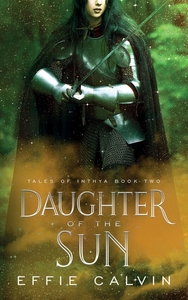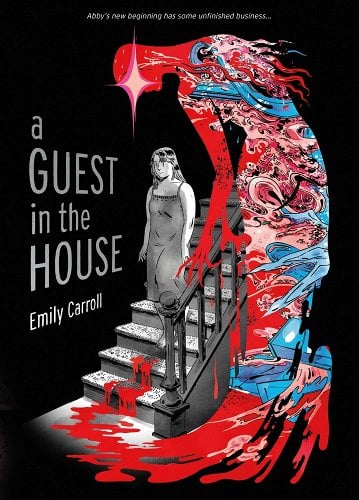Amazon Affiliate Link | Bookshop.org Affiliate Link
Anybody who gets me talking about books in any amount of time will swiftly learn there are a few niche genres I’m an absolute sucker for: weird murder mysteries (see: Jane, Unlimited, Meddling Kids, The 7 ½ Deaths Of Evelyn Hardcastle), atmospheric fairy tale retellings (see: Blanca & Roja, The Girls At The Kingfisher Club, Daughter Of The Forest). But another genre I love deeply, to the point I’ve made a Spotify mix for it, is involuntary road trips. A friend pointed out that’s just a fancy way of saying kidnapping, but that’s not what I mean by the term (though it sometimes applies). It’s two people who may not have a common cause, but who share a common destination and/or mutual benefit in travelling together while absolutely not wanting to travel together. For this genre, think of stories like Jaime & Brienne, Arya & The Hound, the Witcher, Fire by Kristin Cashore, etc. It just so happens that Daughter Of The Sun exactly fits in this genre as well, which was a major contributor to my enjoyment of it.
It’s the second instalment in the Tales Of Inthya series, but as the title suggests, all books are individual tales set in the same world. I don’t believe you would need to have read the first book, as Daughter is unrelated to it in plot terms. The only benefit you might glean is a slightly stronger understanding of worldbuilding, but a lot of that is covered in this book as well. The eponymous Daugher is a Paladin who travels the world of Inthya to vanquish chaos gods and other demon-y issues. After she unwittingly fails to banish one such chaos goddess, they meet again while the goddess is disguised in human form and after a discussion end up traveling together to deliver the ‘human’ to her ‘brother.’ Of course, on this journey they run into obstacles of all descriptions and grow closer together throughout, with the secret identity of the goddess looming ever larger…
While the status of Aelia as a goddess might create an unequal power balance in their relationship, she is rather weak as a result of her duel with the Orsina the Paladin – who is blessed with some magic power from her patron god as well, so they are actually on relatively equal footing in that regard. No, the instability in this relationship is created by Aelia choosing to hide her chaotic identity, which requires her to lie and generally be secretive, which puts a significant strain on their relationship. While this is a topic Aelia chooses to not speak freely on, I was glad to see that honesty and communication were strong facets in all other areas of their burgeoning relationship. They obviously have completely different life experiences and backgrounds, but never use this to judge the other (or when Orsina unconsciously does, Aelia immediately calls her out on it and Orsina apologises and makes efforts not to do so again – which makes for refreshingly healthy communication).
Combine strong communication practices with lots of time forcibly spent together (occasionally in small quarters) and a chaos goddess eager to learn about the human world, and you have the makings for a pretty sweet romance. Sweet is the territory where it remains though, as this never becomes one of those epic or sweeping romances at the heart of some other fantasy road trips. While there is a clear progress of shared moments that signpost the road towards romance and emotional intimacy, it’s that exact signposting that feels a bit too fabricated and like a checklist being followed. This means that the growing chemistry between the two characters never comes across as ‘real,’ which is where showing vs. telling may come into the equation with an unfavourable result.
This issue is exacerbated by one of the most common tropes in any romance: The Other Woman. When Orsina left to travel the land fighting demons and other creatures, she left behind a pampered noblewoman who was leading her on. It is clear from the get go that this noblewoman never valued or properly appreciated Orsina, and so Orsina’s going-on-two-years hang-up seems especially fabricated as a romantic obstacle in the way of her relationship with Aelia. This is not helped by the fact that the noblewoman plays no significant part in the development of the plot whatsoever and could functionally have been left out of the story altogether with no major consequences.
While it is always lovely to read a story where queerness is an accepted fact and queerphobia does not feature at all, it would be even more enjoyable if the queer relationships it champions feel more natural and realistic.
Content warnings: grief, fantasy-typical monsters and violence, injuries, child death (background), emotional manipulation
Marieke (she/her) has a weakness for niche genres like fairy tale retellings and weird murder mysteries, especially when combined with a nice cup of tea. She also shares diverse reading resources on her blog letsreadwomen.tumblr.com


